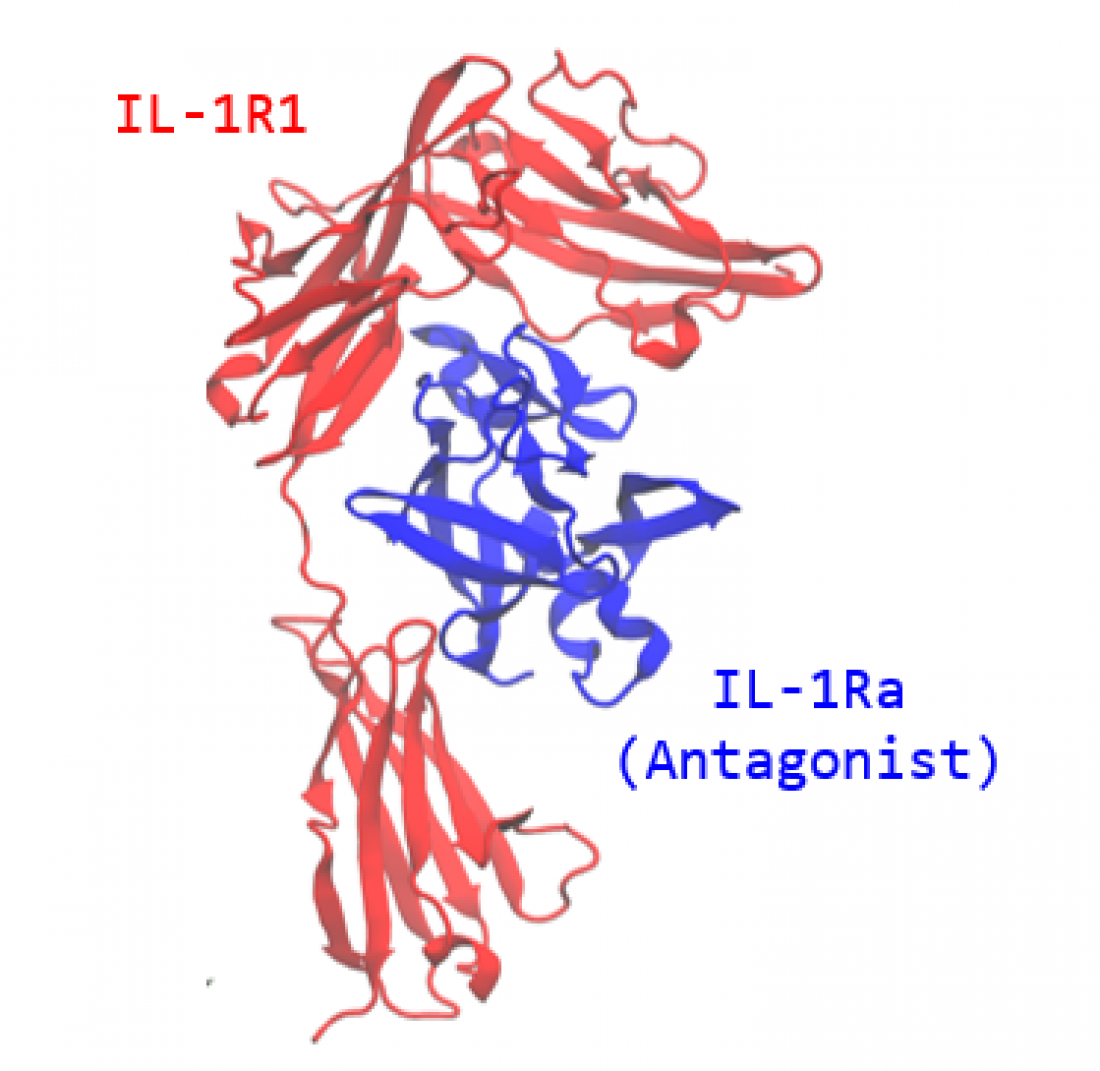□ DGIST (President: Kuk Yang) Protein pCoE Research Group (Research Director Chang Ik-soo), Core Protein Resources Center (Head: Choi Seong-kyoon), and iProtein Therapeutics Co., Ltd. (CEO Lee Ju-hwan) designed the structure of the biobetter-new drug candidate protein of Interleukine1 Receptor Antagonist (IL-1Ra), one of the core proteins that regulate human immunity and inflammation through joint digital innovative bio research using a supercomputer equipped with a high-performance GPU. The team directly produced the designed protein, and through biological and cellular activity verification, has succeeded in discovering a biobetter-new drug candidate protein that demonstrates better functions than acute/chronic inflammation modifiers currently on the market worldwide and Anakinra, which was recently fast-tracked by the FDA as treatment for COVID-19. The team explained that they have started preclinical trials using experimental animals.
□ DGIST Protein pCoE Research Group and iProtein Therapeutics Co., Ltd. used a supercomputer cluster composed of high-performance V100-GPU for big data-AI calculation built at DGIST, the best in Korea, to design the three-dimensional structure of biobetter-new drug candidate proteins with enhanced immunity control functions compared to Anakinra through molecular dynamics simulation. The team calculated the binding free energy between the eight candidate proteins, designed using a supercomputer equipped with a high-performance GPU, and the IL-1R receptor through GPU-TI supercomputing and estimated the superiority order of the eight new drug candidate proteins from a theoretical/computational perspective.
□ DGIST Core Protein Resource Center succeeded in securing and optimizing the source technology in the overall protein new drug production process including gene cloning, expression, and production, for the estimated eight biobetter-new drug candidate proteins. The center measured the 3D structural stability and biological properties of these proteins and their binding constants with the receptor to confirm high effectiveness of the eight candidate proteins compared to Anakinra. In addition, the center discovered biobetter-new drug candidate substances that exhibited better functions than Anakinra, an acute/chronic inflammation regulator currently sold on the market, in at least four of the eight candidate proteins designed by supercomputing through several cell activity experiments. The center explained that it has currently entered preclinical trials using experimental animals.
□ Previously, the DGIST pCoE Research Group and Core Protein Resources Center digitally designed Cold UDG proteins to fundamentally increase the accuracy of PCR diagnosis of infectious diseases using GPU-specialized supercomputing. This is a source technology necessary for eliminating false positive and false negative diagnoses in general PCR diagnosis such as PCR for COVID-19. The technology was transferred to and commercialized by Enzynomics Co., Ltd. and is currently available in the market. Dr. Lee Joo-hwan, CEO of iProtein Therapeutics Co., Ltd., obtained his Ph.D. in New Material Science at DGIST. Since then, he started a bio-startup company and attracted investment, developing a competitive immuno-oncology drug candidate proteins using high-performance GPU-specialized supercomputers at the DGIST Supercomputing and Big Data Center. In addition, DGIST's high-performance GPU-specialized supercomputer is used quite importantly for innovative new bio medicine research by Silicoparm Co., Ltd., a start-up by DGIST students, ultra high-speed analysis of large-capacity brain imagery for several neuroscience/engineering research groups, and research and development led by GIST, Korea Institute of Industrial Technology, Hyundai Motor Company, and SK Siltron.
□ DGIST Protein pCoE Research Group and Core Protein Resources Center, together with iProtein Therapeutics Co., Ltd., accomplished an innovative paradigm that utilizes the existing core technologies of the Fourth Industrial Revolution and also overcomes their limitations through academia-institute-industry joint digital innovative bio research. The team pursues synergies with application source R&D and follow-up commercialization source R&D, which include actual high-end production/character analysis/validity verification of new drug candidate proteins in basic source R&D for new drug development related to cytokines, viral infectious diseases and brain nerve diseases and associated Wet-Bio Lab based on customized protein structure design at atomic levels using GPU-supercomputing.
□ DGIST succeeded in establishing a life-cycle pipeline platform for new drug development and demonstrated the development potential for deriving excellent research results and promoting subsequent application/commercialization to create values by integrating core R&D infrastructure (Supercomputing and Big Data Center, Core Protein Resources Center), outstanding research manpower (Department of Brain Sciences and Division of Biotechnology), technological strength, and produced core protein resources for medical use and building a digital innovation bio convergence R&D teamwork of dry+wet researchers overcoming the bottleneck vacuum technology that exists between protein design, basic, application, and commercialization core technologies.
Correspondent author's email address : [email protected]



